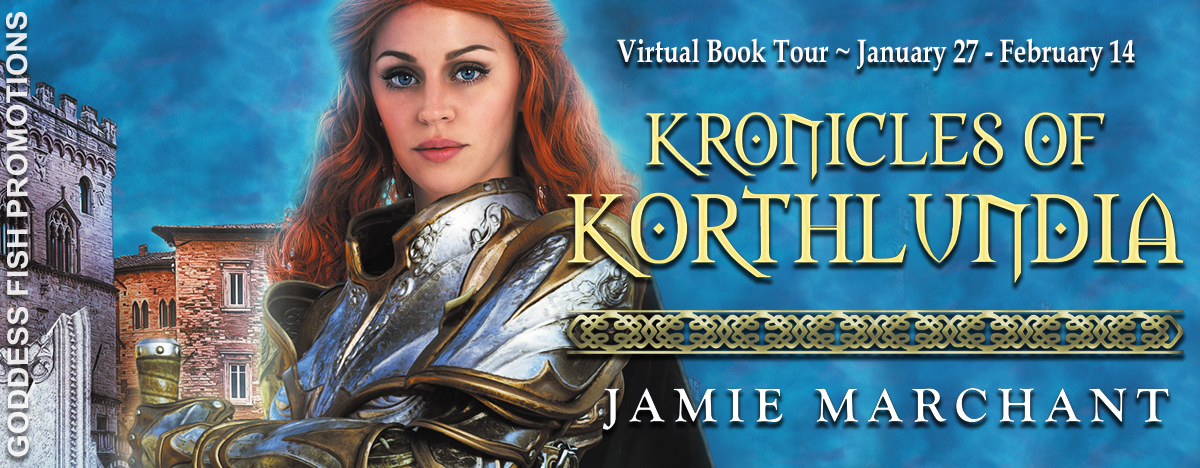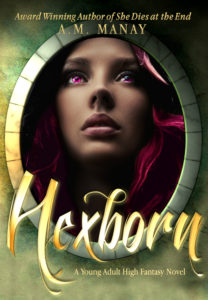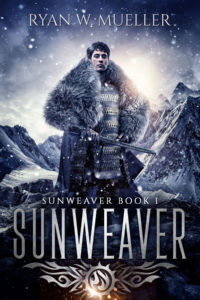Yes, that is the official name of the Mormon church. Somebody on Twitter said he thought I should mention it in my blog, and he’s probably right, but in my first two posts, I resisted doing so.
Yes, the term Mormon was originally a pejorative nickname given to the Church of Jesus Christ of Latter-day Saints by outsiders. Normally, I think we should use the term a people prefer for themselves. For example, I believe in using the term Inuit, instead of Eskimo, because Eskimo, like Mormon, is a term given to the group by outsiders. The Inuit people prefer to be called Inuit, so out of respect we should use it.
Why do I put the word Mormon in a different category?
Because I grew up Mormon in Utah, and Mormon is the word we used to identify ourselves the entire time I was a Mormon. It is true that in the beginning, the church fought against being called Mormons. Early members of the church referred to themselves as Saints. Since others claim that Mormons aren’t Christian, I see why Mormons would want the official name of their church known. But long before I was born, Mormons had embraced the word Mormon. When I was young, the church had ads on television. At the end of the ads, they would say “the message was brought to you by The Church of Jesus Christ of Latter-day Saints, ‘The Mormons.’” In 2010-11, the church launched an $6 million ad campaign, called “I’m a Mormon.” The purpose of the campaign was to show that Mormons are normal people, not the weirdos people tend to think they are, and also to imply that church is more diverse than it really is. Many of the “I’m a Mormon” spots, featured people of color or non-Americans. Members of the church were encouraged to put up their own “I’m a Mormon” profile to say, “See everyone, we’re not weird. We’re just like you.” The church’s choir was known worldwide as the Mormon Tabernacle Choir and has had a weekly radio broadcast using the name Mormon Tabernacle Choir since 1929. The news portion of the church’s official website was called Mormon Newsroom. So why in 2018 did they suddenly start objecting to the use of the term Mormon again? I’ll get to that.
The first time I heard a Mormon object to the use of the word, I was probably 9 or 10. It was in Sacrament Meeting (the term Mormons use to refer to their main worship service). At the local level, Mormons don’t have a professional ministry. The bishop and stake president are lay leaders, and they aren’t paid. In contrast to most Christian church in which a minister gives a weekly sermon, different members of the local congregation (called a ward, by Mormons) speak in Sacrament Meeting. So the talk I will be referring to was given by a regular member of the congregation. At the beginning of his talk, he asked all Mormons to stand. I, along with the entire congregation, stood. The speaker then lectured us, saying that none of us should have stood up because Mormon isn’t the proper name of the Church. He referred to a revelation, supposedly given to Joseph Smith, the founder of the Mormon church, that proclaimed it was God’s will that the church Smith started be called the Church of Jesus Christ of Latter Day Saints. To be Jesus’s church, the organization must be called by Jesus’s name. If the organization is called after the name of a man, it is that man’s church, not Christ’s church. Mormon is the name of a prophet in the Book of Mormon, so if we are Mormons, we are called after the name of a man, making us Mormon’s church, instead of Jesus’s church. Even as I child, I thought the talk was dumb. The speaker obviously knew everyone would stand, or he wouldn’t have asked the question, so his intention was to shame Mormons for thinking of ourselves as Mormons. Shaming is one of Mormons’ favorite things to do. Despite thinking it was dumb, I did also feel shame. This tendency to shame was probably the most damaging aspect of the church to my own psychological and emotional development, so even though it’s been about 40 years since I listened to that talk, I’m still annoyed by it.
Other than this one talk, I don’t recall another time during my membership in the Mormon church where anybody objected to the term Mormon, and I have heard Mormons use the term to refer to themselves thousands of times. It’s important to understand that Mormons consider the leader of their church a prophet, in the same manner that Moses and Abraham were prophets. According to their belief, Joseph Smith, the founder of the Mormon church, was called directly by God as a prophet. Smith claimed, that as a boy, Jesus Christ and God the Father appeared directly to him (Mormons don’t believe in the trinity and consider God and Jesus separate beings) and told him that all churches had fallen away from the truth and that God was going to restore his true gospel through Joseph Smith. Throughout his life, Smith claimed to talk directly to God on a regular basis. The Doctrine & Covenants contains these revelations, including the one on God’s choice for the name of the church. Mormons believe that every leader of the church since Joseph has also been a prophet who speaks directly to God. Mormons sustain these men as prophets, seers, and revelators. This means that when Thomas Monson, the president of the church from 2008-2018, launched the “I’m a Mormon” ad campaign, he did so, as a prophet directed by God.
In 2018, Thomas Monson died, and Russell M. Nelson became president of the church. one of the first things Nelson did was issue a new style guide, telling the press not to call us Mormons anymore. In a speech Nelson gave in the October 2018 Conference of the Church, he claimed, “If we allow nicknames to be used or adopt or even sponsor those nicknames ourselves, He [God] is offended.” Using the term “Mormon” is “a victory for Satan.” Nelson told Mormons, “If someone should ask, ‘Are you a Mormon?’ you could reply, ‘If you are asking if I am a member of The Church of Jesus Christ of Latter-day Saints, yes, I am!’” Nelson launched a concerted campaign to stamp out the use of the term Mormon by members of the church. He changed the Mormon Newsroom to the Newsroom of the Church of Jesus Christ of Latter-day Saints. He even changed the name of the Mormon Tabernacle Choir to the Tabernacle Choir at Temple Square.
You may be thinking that this doesn’t make any sense. If God told Monson to run the ad campaign, “I’m a Mormon,” why did he suddenly adopt an antipathy to the word a few short years later? Why is God offended by the word Mormon in 2018 when he hadn’t been in 2011? How can an all-knowing, all-powerful God change his mind so radically in less than a decade? These are excellent questions. They are questions that we Ex-Mo’s ask.
Actually, we Ex-Mo’s don’t ask the questions because we know the answer. The presidents of the Church of Jesus Christ of Latter-day Saints aren’t prophets. They are simply men, very old white men. Nelson spent years nursing a sore spot about the term Mormon, but couldn’t do anything about it until he was 94 and became president himself. If this isn’t sufficient evidence to prove that Mormon presidents aren’t prophets, I’m not sure what else anyone would need. The current movement against the word Mormon is not an authentic objection by members of the church. It has been imposed upon them by a church hierarchy that preaches about obedience more than anything else.
I personally will no longer obey this church hierarchy. If you have any feelings about the use of the term Mormon or any questions about Mormons, post them in the comments.





 A.M. Manay is an award-winning fantasy author in the San Francisco Bay Area. She is also a former inner-city chemistry teacher, a wife and mother in a multi-racial family, a lover of comic book movies, a Lupus warrior, a Clerk of Session, and a 9Round enthusiast. She loves to write page-turning stories with complex, diverse characters who inhabit interesting worlds.
A.M. Manay is an award-winning fantasy author in the San Francisco Bay Area. She is also a former inner-city chemistry teacher, a wife and mother in a multi-racial family, a lover of comic book movies, a Lupus warrior, a Clerk of Session, and a 9Round enthusiast. She loves to write page-turning stories with complex, diverse characters who inhabit interesting worlds.
 Laura Thompson grew up in a small town on an island that sits in the middle of Lake Champlain in Vermont. She has been writing short stories since the young age of seven and has been an avid reader for longer than that. Although Laura is an adult she admits her imagination is still as active as it was as a child only now, instead of using it to create make believe games she harnesses it through writing. Her first novel was written and completed at the age of sixteen while taking a creative writing class and although not published Laura still feels it was the first step on her path of becoming an author. Laura started writing the Elven Quest Series in 2007, “I had not written for pleasure in a long time and one day the characters from The Burden of Destiny entered my mind and wouldn’t leave. I had no choice but to sit down and write their story. Two years and over 800 pages later both stories are finished and I’m so excited to share them with the world.” Laura holds her Masters in Higher Education Counseling, has a BA in Sociology and co-wrote the published ethical theory model entitled Key Factors in Making Ethical Decisions Model, a chapter in the textbook: Ethical Decision Making for the 21st Century Counselor (Counseling and Professional Identity) by Donna S. Sheperis and Stacy L. Henning. Laura currently resides in Massachusetts with her husband Daniel, wonderful son William and cat Luna.
Laura Thompson grew up in a small town on an island that sits in the middle of Lake Champlain in Vermont. She has been writing short stories since the young age of seven and has been an avid reader for longer than that. Although Laura is an adult she admits her imagination is still as active as it was as a child only now, instead of using it to create make believe games she harnesses it through writing. Her first novel was written and completed at the age of sixteen while taking a creative writing class and although not published Laura still feels it was the first step on her path of becoming an author. Laura started writing the Elven Quest Series in 2007, “I had not written for pleasure in a long time and one day the characters from The Burden of Destiny entered my mind and wouldn’t leave. I had no choice but to sit down and write their story. Two years and over 800 pages later both stories are finished and I’m so excited to share them with the world.” Laura holds her Masters in Higher Education Counseling, has a BA in Sociology and co-wrote the published ethical theory model entitled Key Factors in Making Ethical Decisions Model, a chapter in the textbook: Ethical Decision Making for the 21st Century Counselor (Counseling and Professional Identity) by Donna S. Sheperis and Stacy L. Henning. Laura currently resides in Massachusetts with her husband Daniel, wonderful son William and cat Luna. Humans are “primitive, unintelligent, and highly emotional.” Luckily that’s only half of Isobel’s problem…
Humans are “primitive, unintelligent, and highly emotional.” Luckily that’s only half of Isobel’s problem…